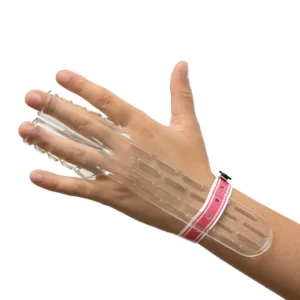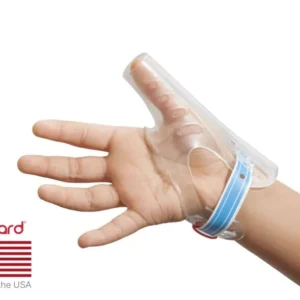While infants and toddlers suck their thumbs to soothe themselves or feel secure, this seemingly harmless habit doesn’t come without its risks. By constantly putting their fingers in their mouth, a child exposes themselves to different germs and viruses that the immune system may struggle to fight. In fact, thumb sucking can lead to serious infections such as herpetic whitlow, which can cause painful blisters on the fingers. This article explains what this viral infection is and the concerns linking thumb sucking and herpetic whitlow.
Explaining Herpetic Whitlow
Herpetic whitlow is a viral infection caused by the herpes simplex virus (HSV), which often shows as a cold sore (HSV-1). This infection targets the fingers, particularly around the nail bed, and enters the body through cuts, scrapes, or irritated skin. Once the virus enters these openings, it replicates, causing painful, fluid-filled lesions that can cluster into honeycomb-like blisters.
Since herpetic whitlow is a viral infection, it can lead to various forms of discomfort, including:
- Burning
- Tingling
- Tenderness
Additionally, having blisters on and around the fingers can make it painful for a child to write, eat, or hold objects. If left untreated, herpetic whitlow can lead to a range of complications, including bacterial superinfection, recurrent outbreaks, nerve damage, or a spread of the infection.
The Connection with Thumb Sucking
The concerning link between thumb sucking and herpetic whitlow lies in how the virus spreads. If a child touches a cold sore and then sucks their finger, they can introduce the virus into their body. Additionally, prolonged thumb sucking can cause the skin to dry out, leading to minor cuts or cracks around the nail bed, which can provide entry points for the virus.
Moreover, children are particularly susceptible to herpetic whitlow due to their delicate skin, which is more prone to cuts and irritation. Their developing immune systems may struggle to fend off infections as effectively as adults. Additionally, frequent hand-to-mouth activity significantly increases their exposure to the virus, especially if they have encounter cold sores.
How To Protect Your Child
Understanding the relationship between thumb sucking and herpetic whitlow highlights the importance of taking extra precautions to protect your child. Consider the following tips to further protect your child:
- Encourage good hand hygiene: Teach your child to wash their hands regularly, especially after touching their face or mouth.
- Avoid contact with cold sores: If your child touches a cold sore, promptly wash their hands to minimize the risk of transferring the virus.
- Maintain moisturized skin: Prevent their skin from drying out by giving them a gentle, child-safe moisturizer.
- Discourage thumb sucking: Help your child stop the habit of thumb sucking by using thumb sucking devices and consistency.
Consult a healthcare provider right away if you notice blisters or swelling around your child’s fingers. Early intervention can alleviate discomfort and prevent complications, ensuring your child’s health and comfort.
End the Habit Now
Herpetic whitlow is one of the many results of thumb sucking that can harm your child. With devices like TGuard’s thumb sucking glove, you can help your little one painlessly end their thumb sucking habit in 30 days. By staying vigilant and taking proactive steps, you’ll play a vital role in keeping your child safe and healthy.





